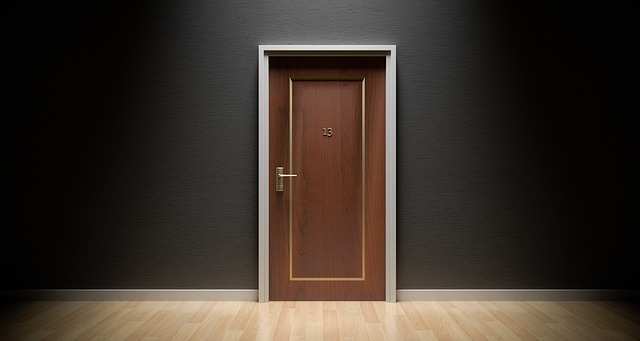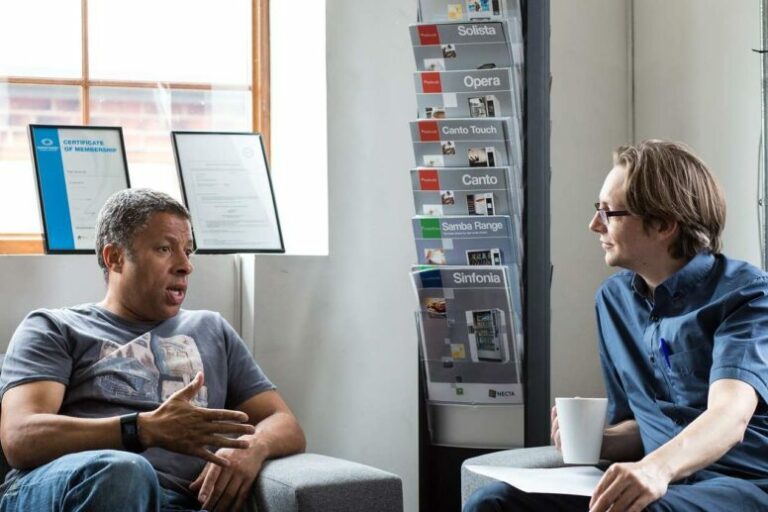Second-guessing plagued me just about every weekend. I wasn’t very good at choosing which social invitations to accept, always worrying that if I said “yes” to something before I knew what all my options were, I’d somehow miss out on something better.
The problem with that mentality is that sometimes something better doesn’t come along.
Consequently, I missed out on a few things I would have really enjoyed due to either my indecision or my tendency to say yes to every single thing and then struggle to fit it all in.
I’ve had a few relapses in adulthood, but overwhelmingly, I’m pretty solid when it comes to making a decision and then feeling confident about it.
But, I didn’t magically wake up one morning with this ability. I had to learn (and apply) a few very important life skills.
What IS Second-Guessing?

The official definition of Second-Guessing is: To criticize or correct after an outcome is known.
But second-guessing doesn’t always have to come AFTER a choice has been made. I suspect that a good portion of the time, second-guessing occurs before one commits to a choice, and therefore, causes problems with the entire decision-making process.
You know you have a problem when your self-questioning paralyzes your ability to make decisions and you start second-guessing your second-guessing!
This behavior originates from a deep-rooted belief that there is a RIGHT choice and that you will probably make the wrong one.
Take a look at the root cause of your dissatisfaction and address why you invalidate your own choices. Is it low self-esteem? A poor track record? Haunting images of your parents expressing their lack of faith in you?
Knowledge is power, and once you understand why you invalidate your own ability to make choices and stand by them, you can begin to repair those issues and change the outdated patterns.
How to Stop Second-Guessing Yourself:
1. Implement a Decision Making Process
This “secret” requires you to embrace a rational model for making decisions. Where you might waste an inordinate amount of time on that teeter-totter of indecision in your mind, a concerted, focused exercise yields results in a short amount of time.
My favorite example is the Pros vs. Cons exercise. Take out a sheet of paper and at the top, write down the issue you are currently struggling with. Make two columns, labeling one “Pros” and one “Cons”. Now, fill out the columns with all the contradictory dialogue floating around in your brain.
Taking the conversation out of your head and getting it out on paper helps your rational mind see the (usually) obvious best choice for you to make.
You can add a second step to this exercise by listing out the Consequences of Making This Choice. If you determine that this choice has the most Pros and you are willing to face the consequences, it’s a no-brainer.
You have just logically come to a fantastic conclusion! And when your tendency to start second-guessing yourself rears its ugly head, you have a tangible resource to refer back to. Brilliant!
2. Learn to Trust Yourself

The act of second-guessing yourself implies that you don’t trust YOU to make a good decision and that you believe there is a right and a wrong version of each outcome. But, is that really true?
Is it possible you have romanticized the notion of right vs. wrong, forgetting that this is life and you are here to live, to gain experience?
And what’s the best way to gather up experience? By trial and error. That’s right… the possibility of making a mistake.
When your fear of making a mistake keeps you from gaining experience, you are paralyzed, my friend. And the way out of this paralysis is to learn how to trust yourself to do the best that you can, with what you know at the time.
I suggest you start a “Proof” journal, where you can record all the instances from your past, where you have made a valid choice that has brought you happiness. Reach as far back into your memory as you need to, just write it down.
You are establishing irrefutable evidence that YOU have the ability to come to a self-affirming, forward-propelling, harmony-inducing conclusion.
Which will help you to believe and trust that you can do it again. And again.
3. Close the Door

So, you feel pretty confident about the direction you’re headed. Until you start weighing out the options again, and you find yourself spinning in the same old loop of internal debate. Stop doing this.
It’s tough to enjoy your choices if you continue second-guessing yourself, constantly debating, doubting, internally struggling, etc.
Don’t leave the door open. Make your choice. Stick to it. And then wash your hands of it.
When you make a decision, mentally visualize yourself closing the door on other options, washing your hands of the responsibility of making that decision. And commit to the new direction.
At least for a set amount of time… and THEN you can come back to revisit it. By then, you will have started getting used to the consequences of your decision.
4. Learn to Make a New Choice
Pssst. Let me fill you in on a secret – you aren’t stuck. EVER. Perhaps you don’t realize this, but you can change your mind. YOU CAN MAKE A NEW CHOICE!
This realization helps you give up the notion that you’ll make the “wrong” choice (even if that used to be your track record), because you accept that if it doesn’t work out, then you can face the consequences, and get back to making a new choice. { It really is that simple. }
When you start wondering if it’s time to make a new choice, ask yourself “Have the circumstances around this choice changed?” If so, then by all means revisit the situation and consider an alternate solution.
But, I want to caution you: don’t waste time constantly revisiting. This is a form of self-sabotage keeping you from truly enjoying fully any of the choices that you make.
5. Engage Your Inner Critic
When your second-guessing originates from your inner critic, instead of getting defensive or wallowing in self-loathing, engage in a healthy dialogue. Rather than viewing the questions as critical, try answering them as a means of justifying your own position.
I discuss this more in-depth in this article: I Vow to Stop Being Mean to Myself – Join Me?
Finding the answers to those questions will provide with you a perspective that either validates or invalidates your choice.
6. Quit Listening to Everyone Else

People have opinions. And many will freely share with you. Some feel it is their right to inform you of what they think you ought to be doing with your life.
If someone else does not have to deal with the consequences of the choices you make, their input is irrelevant.
Listening to the contradictory nature of other people’s opinions, especially when you allow it to knock you off your own course, often serves as a catalyst for you to start second-guessing yourself.
Who else can validate YOUR choices for you?
Are you looking for external approval?
Seek out advice, guidance, direction – from those you trust to have your best interests at heart, all the while knowing that ultimately, YOU are the one facing your own consequences. You will be the one with the final say.
(And don’t forget, if you keep asking the same questions, you don’t want a solution, you want attention.)
7. Respect Your Doubts
Second-guessing, then, can also be described as non-stop questioning, a.k.a. “doubt”.
While we are discussing how to stop this behavior, admittedly, there are times when doubting yourself can serve your best interests, as Beau Seegmiller explains in his latest post, “On Doubt”:
When doubt creeps up on you, respect it for exactly what its value is: to encourage you to explore possibilities, to double-check the conclusions you’ve made.
In this manner, doubt is a valuable tool for you to use in the decision-making process… so long as you learn to recognize the difference between a nagging doubt and your tendency for second-guessing yourself.
8. Develop Your Intuition
Taking the admonition to “Learn to Trust Yourself” to a deeper level, if you really want to break free some second-guessing yourself, you’ll dedicate some time and effort to developing your intuition.
Intuition provides you with a source of accurate guidance that you wouldn’t normally otherwise have access to. Your job is to get to know your Truth, get to know yourself better… by focusing on listening to the subtle clues that are given from your inner compass.
Your Truth is Your Compass – if you don’t know your truth, how do you expect it to guide you?
The quiet sense of peace and calmness radiate from the center of your being when you know, without a doubt, that you are right where you want to be, doing exactly what makes you the happiest.
Challenge: Consider how second-guessing yourself negatively affects your life. Contemplate which of these “secrets” you can start implementing right away.










